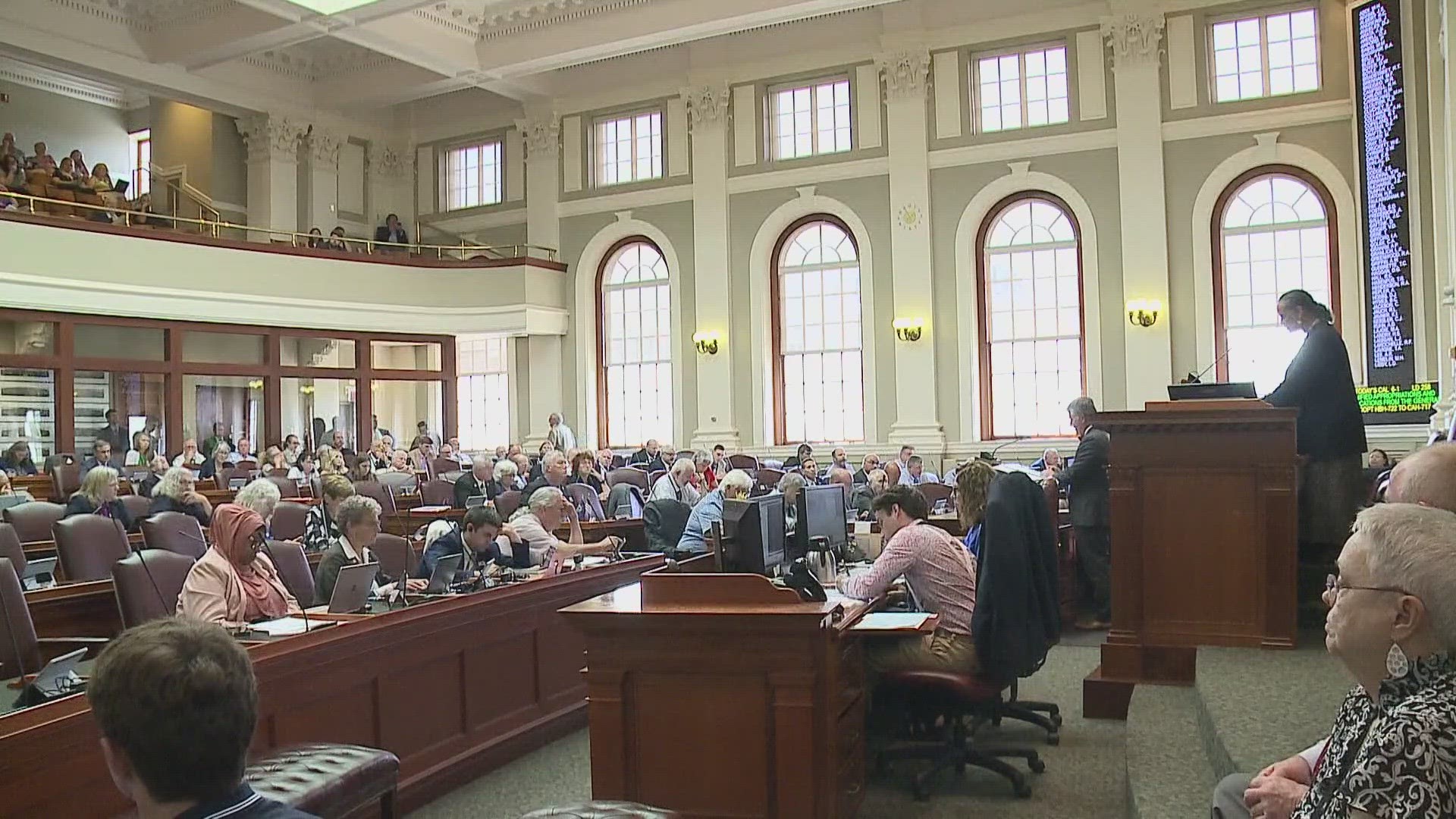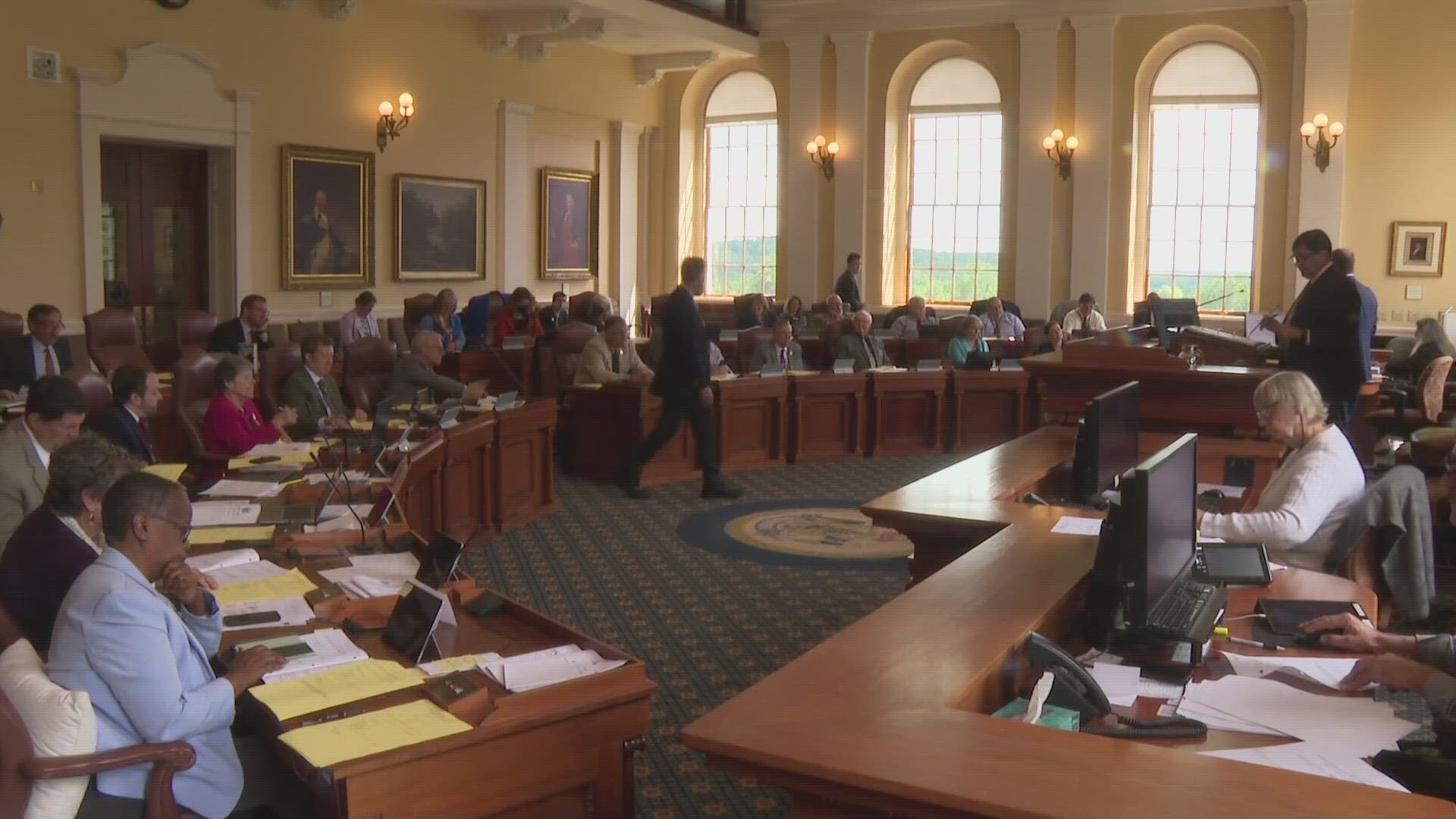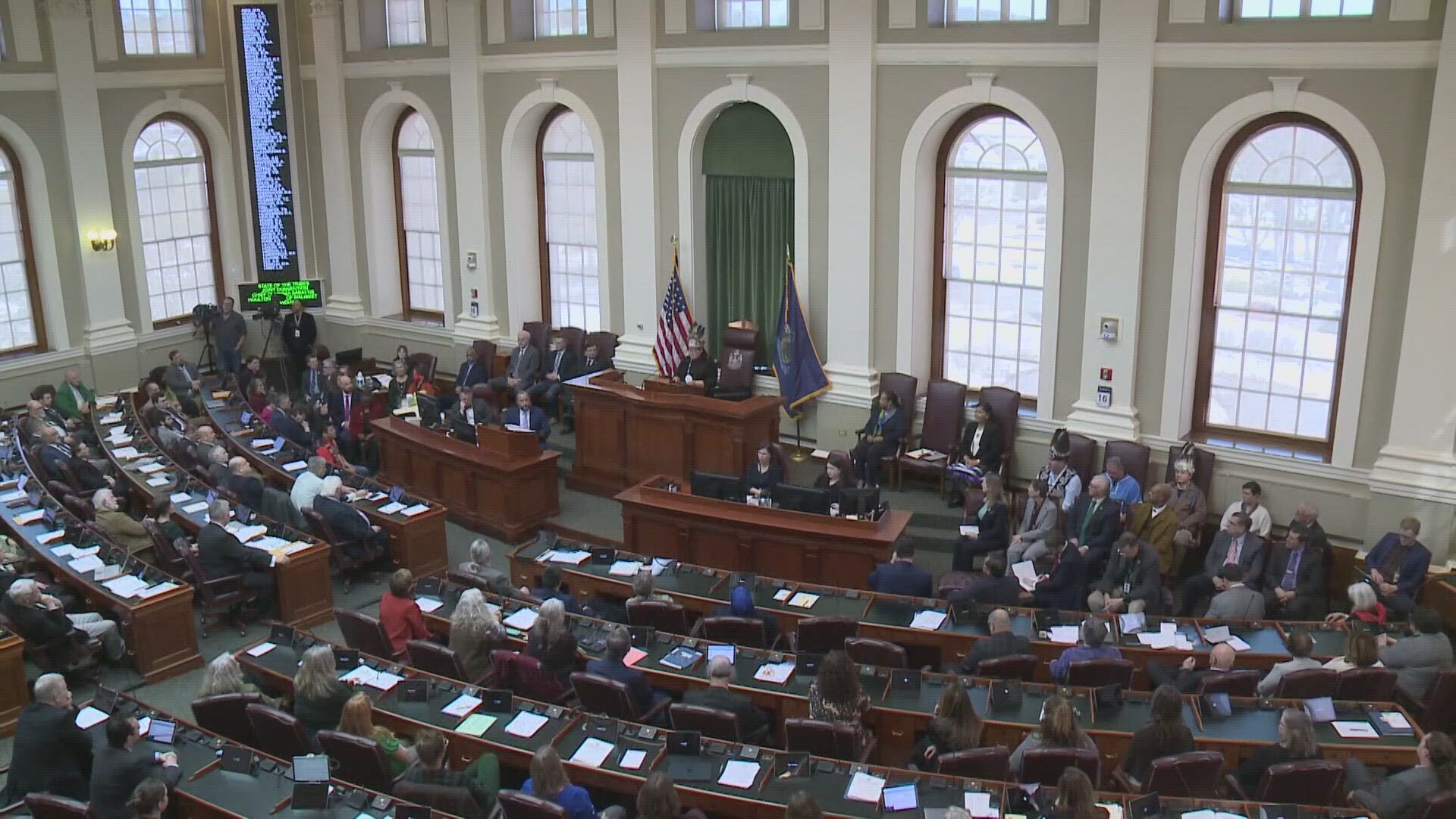AUGUSTA, Maine — Note: The attached video aired prior to the Maine Senate's passage of LD 1619 and the chamber's vote on the state's supplemental budget.
It was a busy return to the Maine House for lawmakers Thursday as the Legislature was gaveled in for another extra day of the session. Many key bills were voted on in both chambers.
Late Thursday evening, the Senate voted 20-11 to pass the governor's abortion bill, LD 1619.
Under current state law, abortions are banned after a fetus becomes viable outside the womb, at roughly 24 weeks, but allows an exception if the patient’s life is at risk. This bill would allow abortions at any time if deemed necessary by a doctor.
Mills, who during her 2022 reelection campaign said she was OK with the current law, is expected to sign LD 1619.
“Voters elected reproductive rights champions to lead this state in a Post-Roe world, and today, these state senators responded with action," Planned Parenthood of Northern New England Interim CEO Nicole Clegg, said in a release Thursday.
Before that highly anticipated vote, the Maine House gathered to weigh in on the governor's veto of LD 2004, a bill allowing the Wabanaki tribes more access to federal benefits and programs.
The House didn't meet the two-thirds threshold required to override the veto.
Tribal Representative Aaron Dana, of the Passamaquoddy tribe, said the votes were somewhat of a surprise after the House had more support on a previous vote last month.
He said he and tribal chiefs will continue to work to secure more rights for the tribes in the future.
Opponents of the bill, including Mills, argued various stakeholders were not able to thoroughly share their concerns during the legislative process.
The Legislature also passed a bill to modify visual impact standards to help encourage more development of wind power. Mills vetoed that bill, and it was upheld after a Senate vote on Thursday failed to meet the override thresholds.
The Maine lawmakers also voted to pass the state's supplemental budget 22-9 in the Senate and 80-58 in the House, according to a news release from the Senate president's office.
The budget includes funding for housing projects, the Housing First program, a paid family and medical leave program, and other initiatives. The budget also outlines investments into child care and other educational programs.
Republican Rep. Laurel Libby of Auburn spoke on the House floor against the bill, calling it a bad budget for Maine families and said it is "unsustainable" and will burden Maine businesses.
Meanwhile, the bill's sponsor, Rep. Melanie Sachs, D-Freeport, said the budget will invest in the state's future and provides opportunities to every Maine community.
The budget needed a two-thirds majority vote to take effect immediately, but now it will wait 90 days to be enacted.
The governor also said she would sign the budget into law once it comes to her desk.
The Democratic-led Legislature already approved a nearly $10 billion essential services budget along party lines in March to avert any late attempt to use a shutdown as a bargaining tactic. That budget went into effect July 1 with the new fiscal year.
The votes on Thursday were for additional proposals and amounted to about $800 million in additional spending.
That includes $25 million in startup costs for the paid leave proposal that would be funded through a payroll tax split between workers and employers and capped at one percent of wages. The benefits could be paid out for qualifying conditions, such as the birth or adoption of a child, a serious illness, care for a sick relative or transition from military deployment.
Key to the bipartisan support were several tax-related proposals including one that raised the amount of pension income that’s exempt from state income taxes from $30,000 to $35,000.
Lawmakers also included money to double an existing $200 wage stipend for childcare workers, as well as funding for the governor’s proposed Dirigo Business Tax Incentive Plan, which would replace the existing Pine Tree Development Zones.



